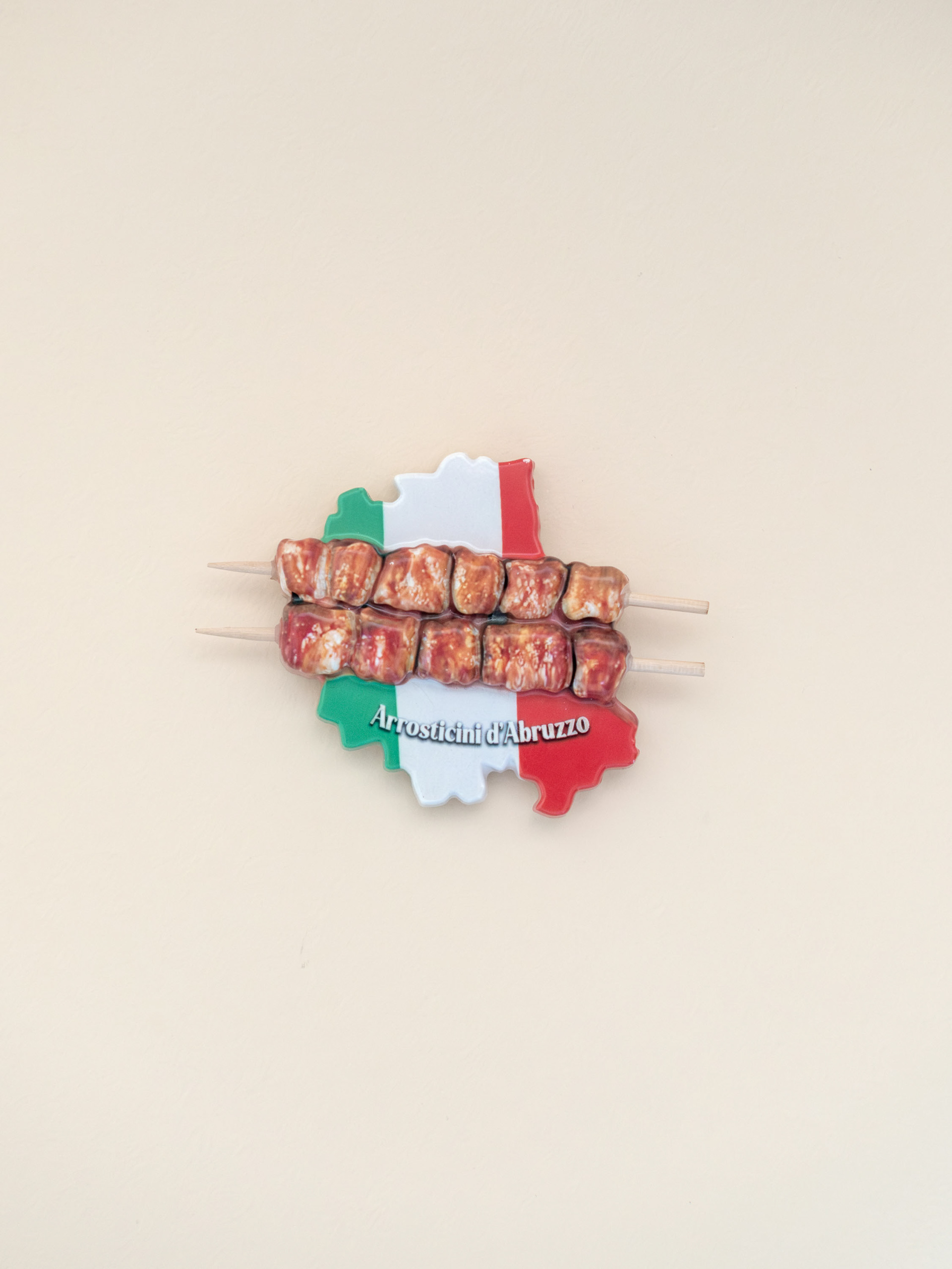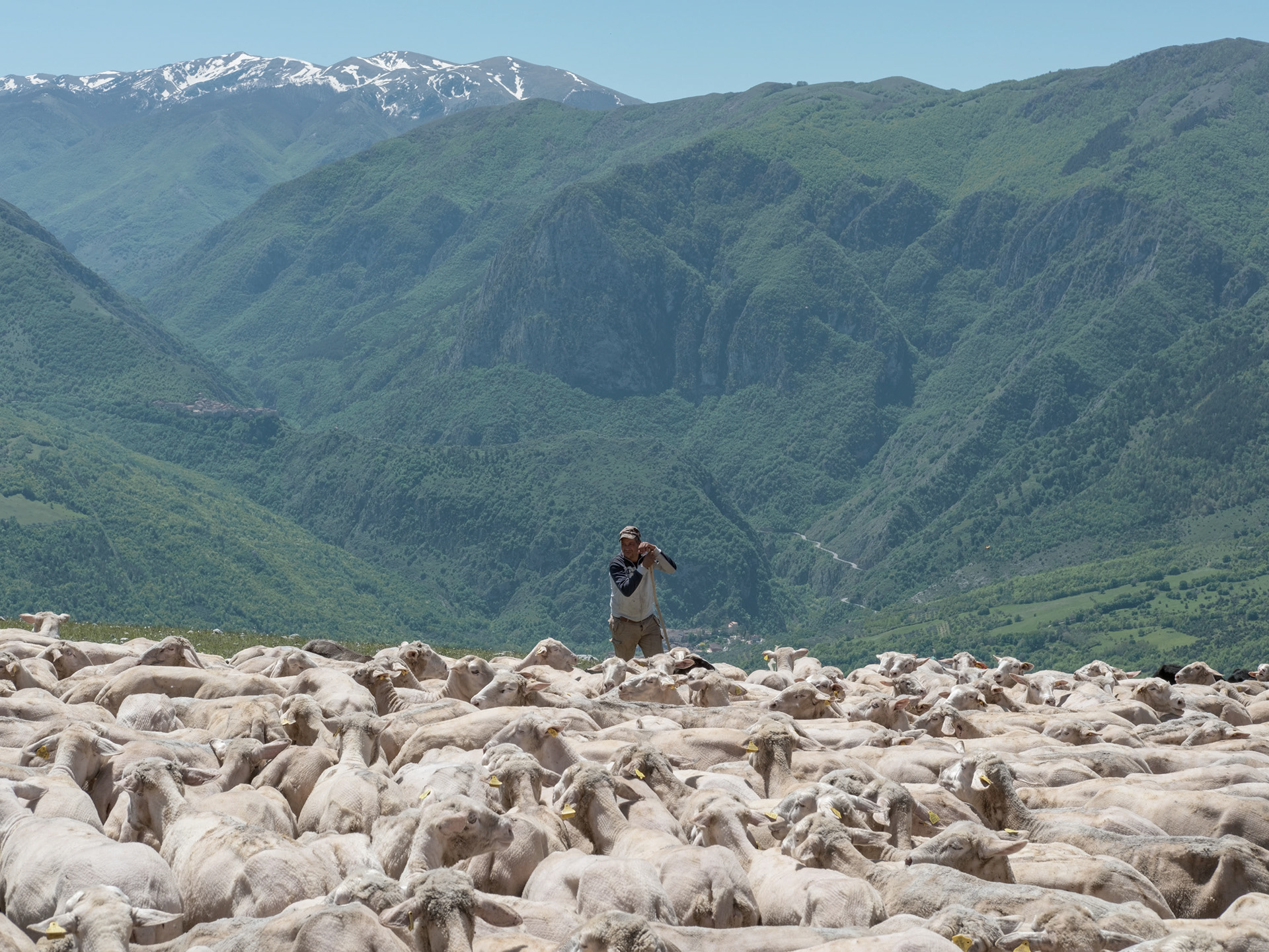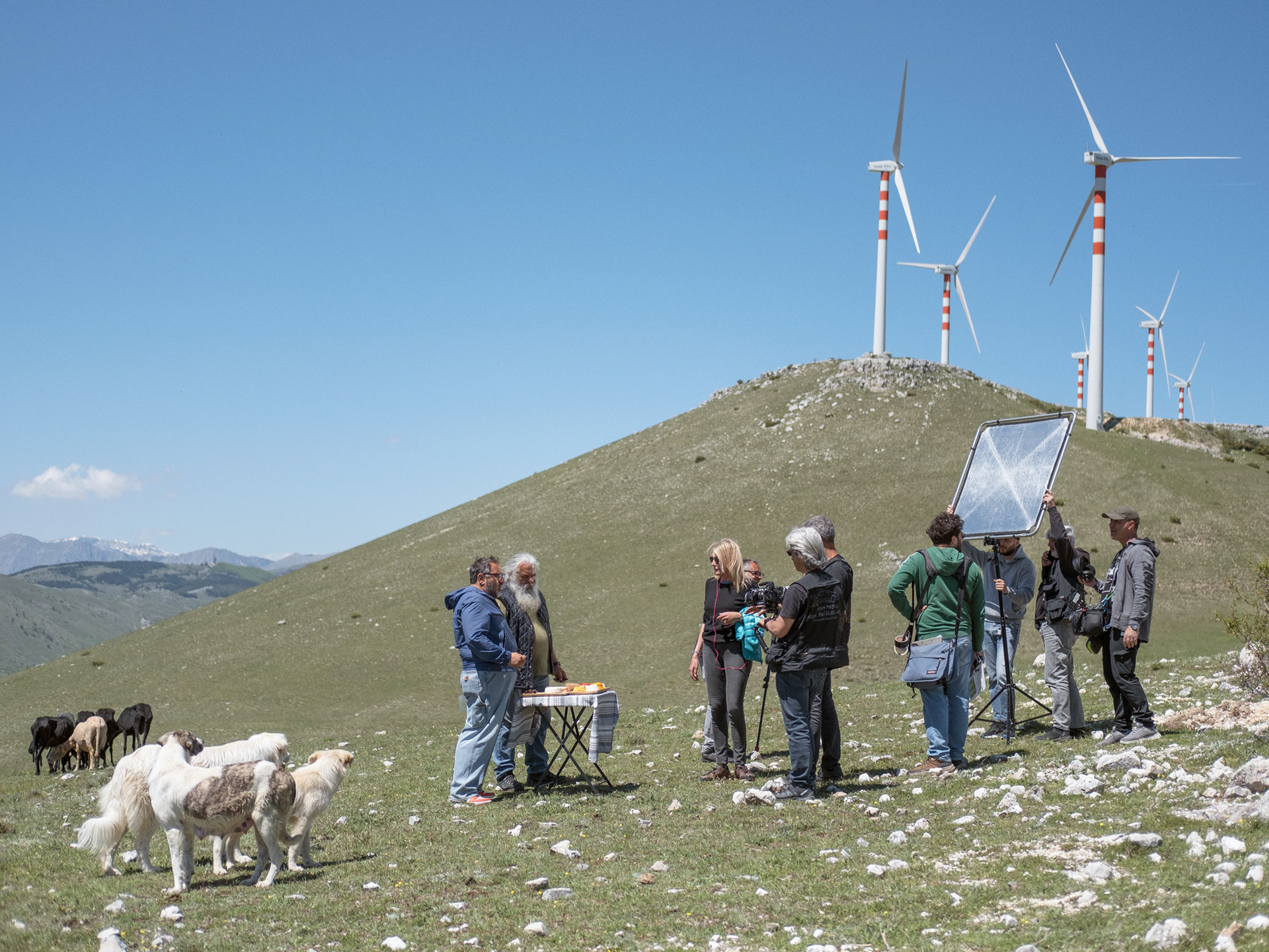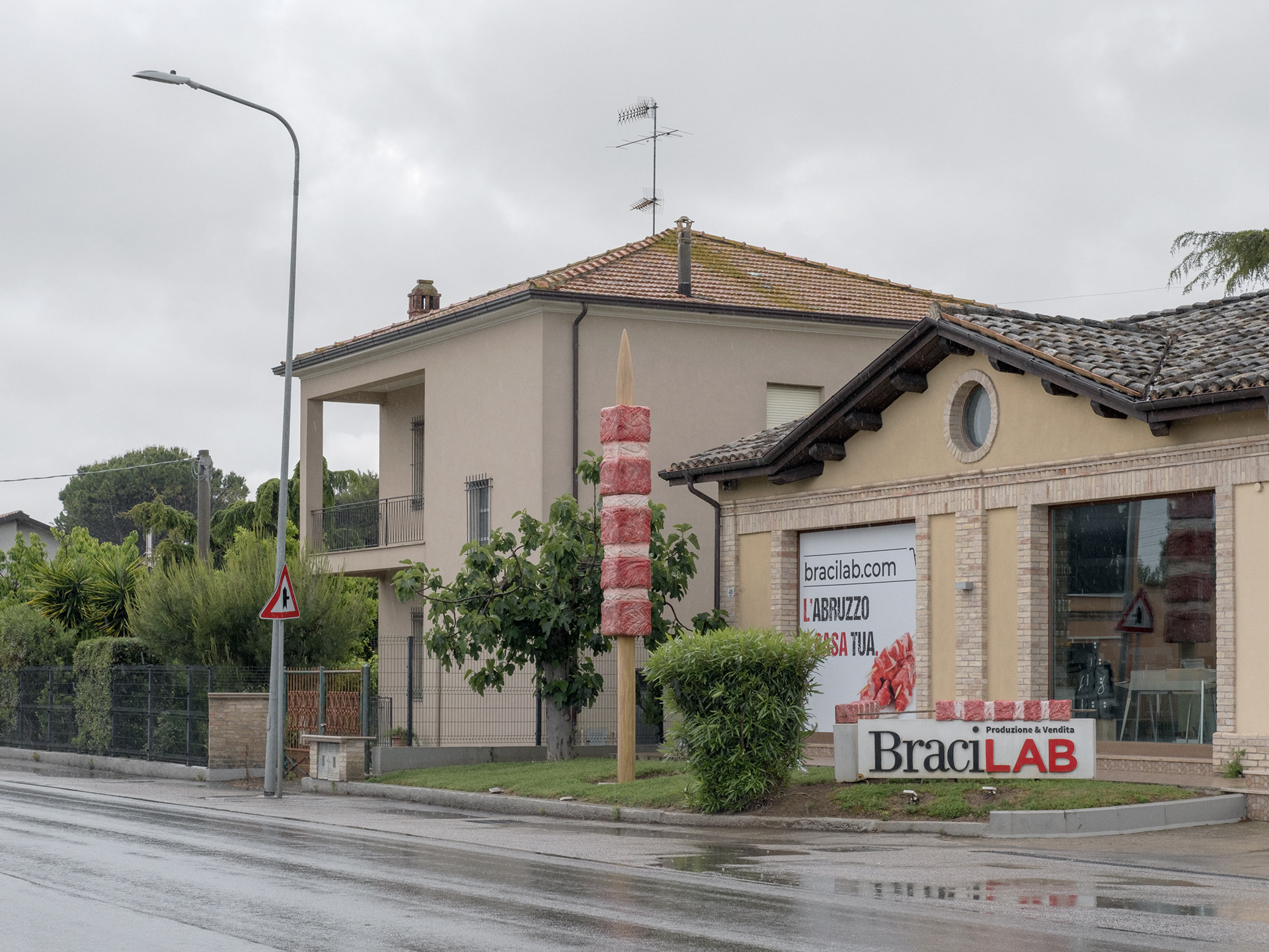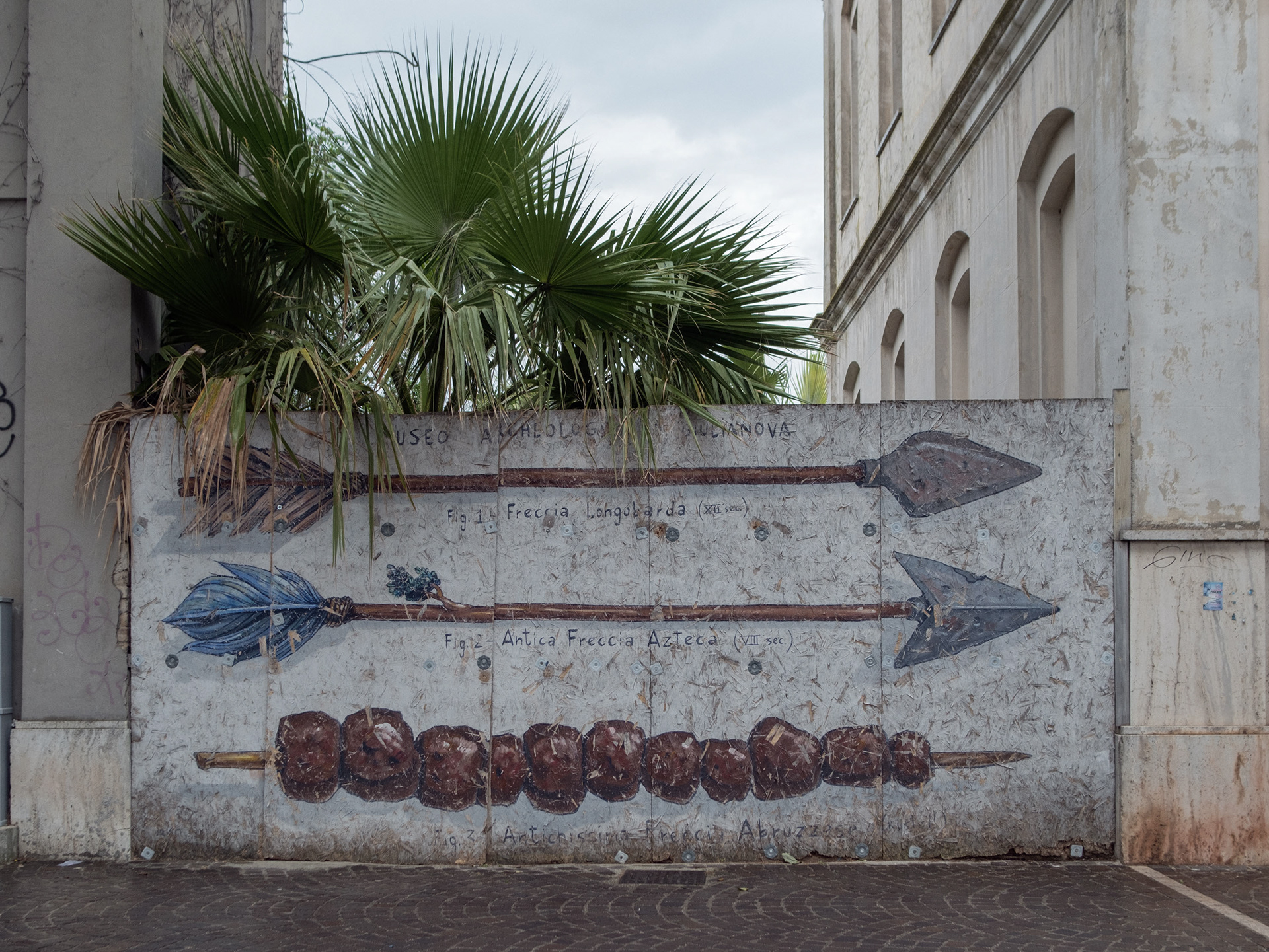Ongoing - February 2025
In recent decades, food and traditional cuisine In Italy have become powerful vehicles for expressing national pride and cultural identity. Regional food products have been elevated to icons of authenticity and used as symbols of collective belonging and identity. This phenomenon has given rise to a form of gastro-nationalism, increasingly used by institutions, local authorities, and businesses to promote regions, drive consumption, and position themselves on the global market.
In the Abruzzo region, this narrative finds its most iconic expression in the arrosticino, a skewer of grilled sheep meat. Featured at local festivals, promotional events, and across tourist imagery, the arrosticino has come to represent an idealized vision of the region: a land where time-honoured pastoral traditions endure, echoing the romantic landscapes once celebrated by poets like Gabriele D’Annunzio and painters such as Teofilo Patini. But behind this idyllic image lies a very different story.
While the arrosticino is widely embraced as a symbol of Abruzzese identity, the people who actually produce it remain largely invisible, overlooked by institutions and unknown to the broader public. In spite of the growing interest, the region’s pastoral sector has been in decline for years, weakened by shrinking subsidies and demographic collapse. Today, it survives almost entirely thanks to foreign workers from the Balkans, the Mediterranean, and sub-Saharan Africa - who, in some areas, make up as much as 90% of the workforce. Often employed under precarious or undocumented conditions, they are excluded from the romanticized narrative of authenticity and identity that their labor makes possible.
Pastorale Abruzzese explores the disconnect between the celebrated image of arrosticini and other regional delicacies, and the lived realities of the migrant workers who sustain the agro-pastoral economy in the province of L’Aquila. By following their daily work in barns, in fields, and in dairies, the project seeks to give visibility and voice to those who remain in the shadows, yet whose contribution is essential to the very identity Abruzzo lays claim to.
Using Abruzzo as a case study, the project also seeks to highlight the broader tensions at the heart of the country’s current turn toward gastro-nationalism. Framing traditional dishes and local foods as fixed and timeless expressions of identity is, in fact, a historical distortion, one that overlooks the reality that every food product is the result of centuries of exchange, hybridization, and cross-cultural entanglement between plants, animals, and people.
